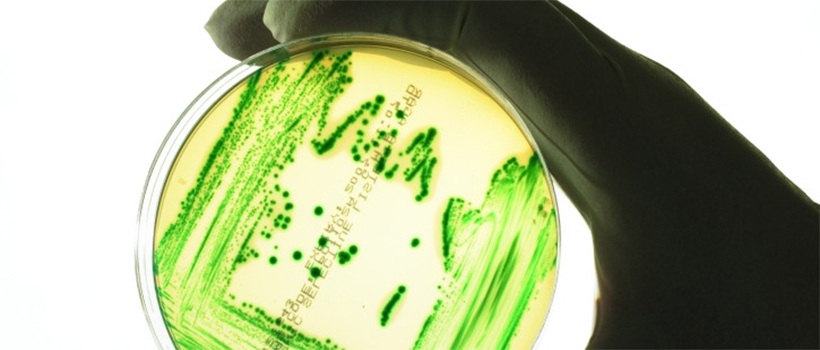
Listeria - the full story: Understanding, controlling, and preventing the silent threat in food safety
Summary
Join us for an insightful event exploring how to understand and tackle Listeria risks across the food chain — from good manufacturing and food processing practices to effective cleaning strategies and retail perspectives. We'll dive into outbreak and recall management, public health impact, and a real-world case study showcasing fast and insightful detection methods such as pathogen mapping and environmental monitoring expertise.
Who should attend
Designed for decision-makers across the food production chain – because Listeria management is everyone's business.
Event Director
Fiona Cawkell
Provisional programme
| Time | Presentation |
|---|---|
| 09:00 | Registration and arrival refreshments |
| 09:30 | Welcome and Chairperson's introduction |
| 09:45 | Outbreak management and impact to public health Anaïs Painset, UKHSA |
| 10:25 | Networking and refreshment break |
| 10:45 | Control of Listeria through formulation and process Jeff Banks, Managing Consultant, Food Safety Assurance |
| 11:25 | How can we optimise source tracking for L. monocytogenes Lina Otero, bioMérieux |
| 12:00 | Networking and lunch |
| 13:00 | Listeria – a retail perspective This presentation will share the challenges with Listeria management from a retailer point of view, including the importance of approving and managing a strong base of partner suppliers, detailing how Listeria specifications are set, how results are monitored and out of specification results and incidents managed. Sarah will also share some of the Co-op’s next steps as part of the ever-evolving challenge to maintain product safety. Sarah Dickinson, Co-op Group |
| 13:40 | Networking and refreshment break |
| 14:00 | Mapping Listeria spp. through ready-to-eat food production premises in Wales and the use of adaptive laboratory evolution
to assess biocide-antibiotic cross-resistance This presentation explores two components of Joshua’s PhD; the distribution of Listeria spp. within three ready-to-eat (RTE) food production premises in Wales and the development of an adaptive laboratory evolution (ALE) experiment to investigate biocide-antibiotic cross-resistance in environmentally derived Listeria spp. The findings suggest that stress-adapted, less virulent sequence types (STs) form persistent communities within facilities and centre around difficult-to-clean sites. These findings highlight the value of academia-industry collaborations in identifying and addressing Listeria contamination persistence. The ALE experiment revealed benzalkonium chloride-mediated cross-resistance to clinically pertinent antibiotics, with both phenotypic and genotypic evidence of adaptation. Josh MacLeod, Cardiff Metropolitan University |
| 14:40 | What kills Listeria and how do you remove it? “Managing Listeria through active hygiene”. This presentation will highlight strategic methods of decontaminating high hygiene areas through the effective use of cleaning agents as part of a 5 point control plan to manage Listeria. David Childs, Kersia UK |
| 15:20 | Panel discussion: Listeria in transition - EU rules and the UK reality |
| 16:00 | Q&A and close |
Speakers
Anaïs Painset, UKHSA
Anaïs Painset is a Lead Bioinformatician for gastrointestinal pathogens at the UK Health Security Agency (UKHSA), formerly known as Public Health England. Since joining the organization in 2015, she has been instrumental in the implementation of whole genome sequencing (WGS) pipelines for gastrointestinal pathogens. Anaïs has extensive expertise in analysing WGS data to support pathogen surveillance and outbreak investigations, particularly through phylogenetic analysis. Her research interests include phylogenomic and gene profiling, with a focus on genotypic antimicrobial resistance (AMR) and virulence factors.
Jeff Banks, Managing Consultant, Food Safety Assurance
Dr. Jeff Banks is a food quality and safety professional with more than 45 years’ experience. He holds a degree in Applied Biology and a PhD in Food Microbiology. After academic work he become the Microbiology Department Head at Campden Food Research. He has deep knowledge and experience in all segments of the food processing sector. He has assessed or audited over 1200 plants in over 80 countries and claims to remember all of them. He has held senior leadership positions in R&D, Quality Assurance and Regulatory Affairs in global food business such as DuPont, Cadbury-Schweppes, Kraft Foods and Barry Callebaut. Jeff feels equally comfortable in the boardroom, on the plant floor or in courts of law.
He currently applies his knowledge to support clients in the food sector manage food safety and quality risks; ensure regulatory compliance and develop innovative solutions to complex technical challenges. He specialises in root cause analysis and incident management. He is an expert witness and has successfully applied his talents in legal cases in several countries for both defence and prosecution and in the International Court of Arbitration. He claims to have a 100% record of success - but still believes that prevention is much better than litigation. Over the years he has been sought out by businesses in crisis caused by microbes. Jeff has successfully resolved major microbiology incidents involving Salmonella, Listeria monocytogenes, and E. coli, typically during and after outbreaks of foodborne disease involving significant morbidity and mortality.
Most of the time, however, Jeff works in the shadows, without publicity - the unseen hand at work – preventing problems, avoiding withdrawals and recalls and de-risking the food supply chain.
As a footnote, he is a proud father of an even more famous microbiologist, Dr. Emma Banks, Royal Society Fellow 2023 based at the prestigious John Innes Institute in the UK.
Lina Otero, bioMérieux
Lina is a Microbiologist and Epidemiologist with experience in Food safety regulatory agency and multinational biotechnology companies, holding key roles in technical support, product management, project management, marketing and business development at local, regional, and global levels. Her diverse work experience spans Americas, Europe and Asia showcasing her adaptability and multicultural leadership.
For the past 10 years, Lina has collaborated with food manufacturers, supporting their food safety and quality programs through the integration of advanced technologies and process improvement. Her efforts have ensured reliable and efficient decision-making processes, significantly enhancing operational standards.
Sarah Dickinson, Co-op Group
Sarah Dickinson is a Microbiologist and Food Technologist working as a Technical Manager within the chilled prepared team at the Co-op. Sarah is also the current Chair of the Campden BRI Microbiology Member Interest Group.
Sarah has a BRC (hons) in Microbiology from the University of Leeds and a MSc in Food Technology from Manchester Metropolitan University and has worked in a number of roles including the NHS where she first developed an interest in food pathogens, proficiency testing for the food and brewing industries and food testing laboratories. Sarah has also worked in food manufacturing covering Food Safety and Quality and is currently working in retail where Sarah has been a Technical Manager for 18 years within chilled, food to go, bakery and ambient.
Sarah’s role at the Co-op involves managing the ready meals and savoury snacking categories which include both ready to reheat and ready to eat products, where Listeria is one of the main food safety risks. Her work includes supplier management, auditing, product development and incident management. Sarah also advises the Co-op team on all things microbiology supporting with the Co-op specifications, Codes of Practice and training.
Josh MacLeod, Cardiff Metropolitan University
Joshua is a microbiology PhD student at the ZERO2FIVE Food Industry Centre, Cardiff Metropolitan University specialising in the distribution of Listeria monocytogenes in food manufacturing environments and antimicrobial resistance. His research focuses on the genetic and environmental factors influencing bacterial persistence and adaptation in food production facilities. Joshua is also a consultant microbiologist with a focus on food safety, food microbiology, and method development, and he has previously worked in UKAS-accredited food testing laboratories.
David Childs, Kersia UK
David has over 30 years’ experience working within the food manufacturing industry within the fields of microbiology, hygiene management, technical sales and technical food safety support.
After graduating from Strathclyde University with a degree in Biotechnology, David has worked as both a Microbiologist and Hygiene Manager within the fresh meat and ready to eat industry sectors, before moving into technical sales and technical service food safety support roles within the speciality hygiene chemical manufacturing industry in 2004.
David Childs works for Kersia UK (formerly known as Holchem Laboratories Limited), as a Technical Service & Training Manager. This role is primarily aimed at providing the customer with an additional level of technical support in the form of investigations and audits as well as training, specialising in hazard management.
This background has played a big part in David’s enthusiasm for the practical aspects of a Hygiene Management System and the search for realistic solutions to customers’ problems, particularly in trouble shooting microbiological issues within a food processing environment.
David manages Kersia UK’s validation, verification and monitoring test kits and equipment portfolio and provides customer support on the various systems available along with providing specialist advice around cleaning validation. David also manages Kersia UK’s training portfolio, which includes a range of nationally accredited hygiene courses.
David is a Director and Treasurer on the Society of Food Hygiene & Technology (SoFHT) council and is an active Committee Member of the European Hygienic Engineering Design Group (EHEDG). David has also contributed to several food safety/hygiene publications and industry guidelines.
Please note copies of the presentations will not be available on the day but a recording of the event will be made available within a few days of the event for registered delegates.


